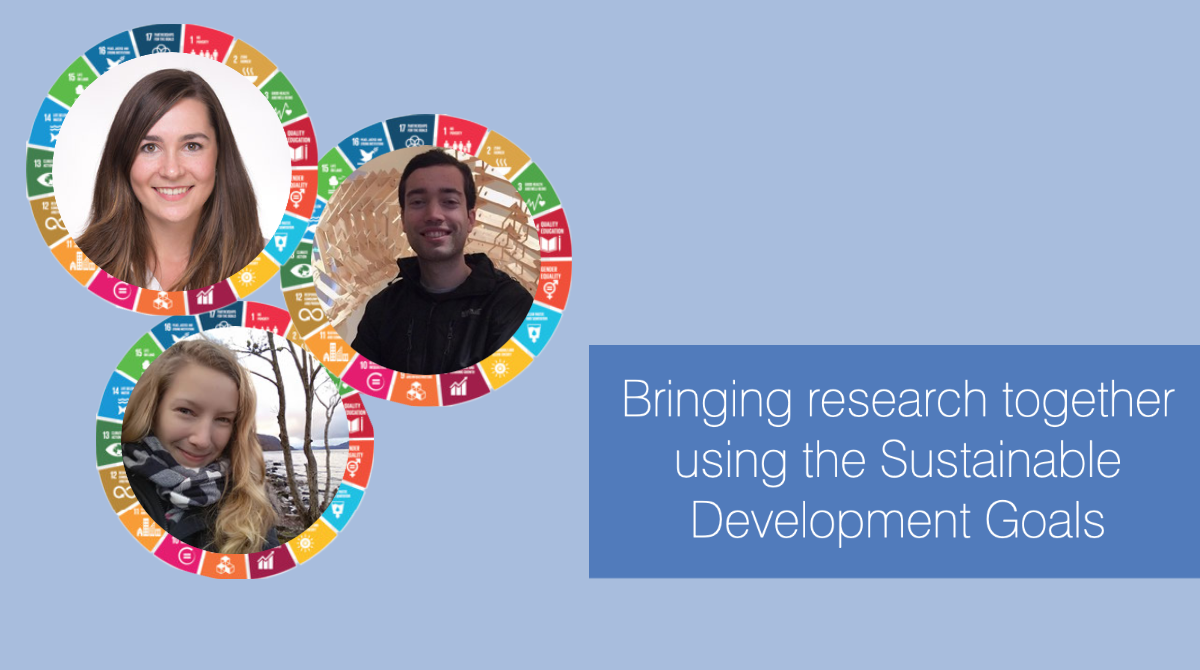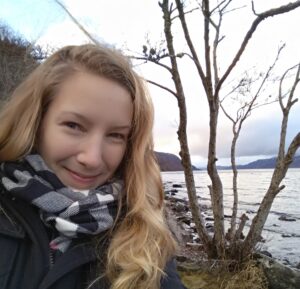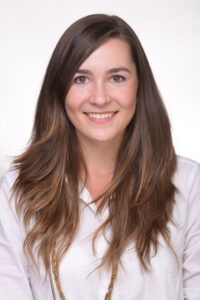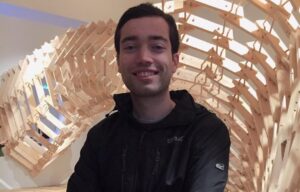Bringing research together using the Sustainable Development Goals

Emma, Kim and Zak attended a virtual PhD workshop run by the University Alliance for Sustainability (UAS), in which participants were able to discuss their research in the context of the United Nations Sustainable Development Goals (SDGs). Here they share their reflections on this experience and their future plans to build upon the success of this event.
Kim Vender is a 4th-year doctoral researcher in Politics and International Relations investigating China’s role in international climate change negotiations with a special focus on climate leadership between perception, conception, and reality. Her second field of interest is nature-based solutions to climate change, ecosystems-based adaptation, and especially blue carbon, on which she has been working together with the Department for Social Responsibility and Sustainability.
Emma Yule is a PhD candidate in the School of Geosciences researching within the field of climate science. She investigates extreme heatwave and drought events in the past and considers how they may change in a warmer world. Emma is also interested in how we can translate hazards to risks and communicate the changing risk of extremes to decision-makers.
Zakary Campbell-Lochrie is a PhD student in the School of Engineering, where his research focuses on understanding the physical phenomena that control flame spread in wildfires, and the effect of vegetation structure on fire behaviour.
It is highly motivating to see how differently, but equally passionately, people tackle the same overarching challenge
In November 2020, the University Alliance for Sustainability (UAS) brought together PhD students from a wide range of disciplines for two parallel PhD workshops focused on sustainable development. Working in small teams over a five-day period, and using various virtual platforms, we discussed how our individual research areas addressed the SDGs, identified areas of overlap, and explored the potential for UN frameworks to guide and shape these cross-discipline conversations.
Each group presented their key takeaways from their discussions, supported by creative and colourful presentations, in a live session on the final day. We would like to thank Dr Berthold Kuhn, Prof Kurt Hübner and the organising team, and we are delighted to share some of our reflections from the event.
Key thoughts & reflections
Kim

Kim Vender
For me as a Politics student focusing on the international level, it was a perceived challenge at first to find overlapping approaches to the topic with the other participants. However, I finally joined together with students of Engineering, Law, Economics and Management investigating scientific and behavioural aspects. What seems like an arbitrary mix of research foci, in the end, was a highly beneficial lens that widened my perspective on approaches to the climate change challenge. The discussion not only helped me to see the plethora of small aspects that make up the ‘big picture’ of national policy positions in the international negotiations, but it also opened up my view on how the SGDs (esp. 13 and 17) fit with my own research project.
Overall, I learned how social factors influence the support for smart city solutions; that liability rather than regulations is better suited to account for environmental damages; and how creatively engineers are tackling the issue of energy generation in a circular economy. It is highly motivating to see how differently, but equally passionately, people tackle the same overarching challenge. In this sense, the workshop showed me how much potential interdisciplinary collaboration has for designing comprehensive and, thus, more effective projects.
We therefore concluded that discussing research with others from different disciplines is crucial for effective communication and therefore effective mitigation and adaptation to climate change.
Emma

Emma Yule
The workshop provided us with a great opportunity, particularly in this year of lock-down to meet other PhD researchers from a whole host of disciplines. In teams, we discussed how each of our research areas addresses the SDGs as well as the links between our individual research topics. For example, within my group we had someone specialising in heatwaves another researching the spread of wildland fires and the last group member looking into displacements of communities due to extreme events. We therefore were able to discuss not only how each of our research topics contributes to which specific SDGs but how we could learn from each other’s research.
We discussed ways to make communication stronger between disciplines that work on similar topic areas from different angles. For example, the terms “risk” and “resilience” can have different meanings and connotations based on which discipline they are discussed within. This can lead to miscommunications when discussing issues in an interdisciplinary setting. We therefore concluded that discussing research with others from different disciplines is crucial for effective communication and therefore effective mitigation and adaptation to climate change.
I see a real benefit to promoting these sorts of discussions and considerations of the SDGs at the earliest research stages, particularly within the early idea generation and planning stages.
Zak

Zakary Campbell-Lochrie
It was surprising just how effective the SDGs were in framing the discussion of seemingly very different research projects. Along with other UN frameworks (e.g. Sendai framework), this quickly gave our team a shared vocabulary to explore the hidden connections between each of our research areas. While the technical complexities of each group member’s research area were apparent, we were able to focus immediately on common sustainability objectives and drivers.
I see a real benefit to promoting these sorts of discussions and considerations of the SDGs at the earliest research stages, particularly within the early idea generation and planning stages. If we seek relevance and applicability in our research, then it seems natural to consider where we can contribute to these high-priority global targets.
Going Forward
Building on the success of this workshop and our positive experience, we see great benefit in using the SDGs to bring together researchers from various disciplines. With the aim of sharing ideas and sparking inspiration to find new approaches to persisting challenges, the SDGs can be used to:
- Facilitate exchange and collaboration across disciplines
- Disseminate research outside of academia
- Make research more inclusive using a global framework in transnational collaboration
Starting at the University of Edinburgh level, we are planning to conduct a workshop series organised around the SDGs. The workshops are targeted at research students and staff and are planned to feature guest speakers from all sectors. The first introductory workshop is currently being organised and will be advertised closer to the date (later this semester).
We welcome wide participation from across the university and hope to see you there!
An introduction to the Sustainable Development Goals
Find out more about the University’s recent SDG mapping project





Recent comments